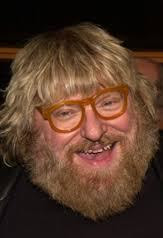When you've just expressed an opinion people don't care for, they will often ask you where you are from. It's a throat-clearer, a way of changing the subject, if they want to, or of finding some ammunition they can use as they ram on with the debate. When I tell them "Paterson, New Jersey," it stops things dead. They don't know what to say. Unless they're from North Jersey, they've only heard of it vaguely and in some sort of unfavorable light, but they can't remember why. Was it Rubin "Hurricane" Carter (played by Denzel Washington)? Was it my high school principal, the one with the baseball bat (played by Morgan Freeman)? Was it a sour little movie about a bus driver named Paterson (played by Adam Driver -- a driver played by a Driver)? Was it something to do with an Al-Qaeda cell? Was it about a flood, visited by Obama in a rowboat? A riot when Dr. King died? Paterson, which has only one‘t’, has gotten a bit of a bounce the last few years thanks to, get ready for it, Hamilton. The musical. Among other things he did that are not mentioned in the three-hour show, Alexander Hamilton founded Paterson. He evidently saw the Great Falls and knew this would be a good place for mills and industry. And he was right. For a couple of hundred years, it was. Paterson was the Silk City, with probably the world's first hydro-electric setup. Legend has it the Passaic River ran many festive colors and every fish that emerged from it was a rainbow trout. But cheap labor down south eventually killed that and somehow tech forgot to transform the place the way it did other forgotten cities. When I grew up, Paterson was not just resting on its laurels, but in a deep ambient sleep on them. There was still some grandeur, some of it real, like the houses in the Manor ringing Eastside Park, some of it fabled, like Lambert Castle, looming over downtown. It was living in the shadow of New York City, but it was still a city, too, with a downtown and a white-gloved department store called Meyer Brothers and some bona fide movie palaces of the old school. And there was a thriving Jewish community, just on the cusp of moving to places like Wayne and Pompton Lakes (the younger families) and Hackensack and Ft. Lee (the empty-nested ones). The Jewish kids all went to Eastside, just before drugs and Joltin' Joe Clark moved in. We gathered at the Cozy, our version of the Peach Pit, or, once we could drive, at the Bonfire. There was the Barnert Temple, for the Reform families, and Temple Emanuel, for the Conservative, where I was bar-mitzvah. It was built in the style of a Cecil B. DeMille version of one of the temples in Jerusalem, so it looked biblical, while the Barnert looked like a small cathedral in Prague. My family was among the founders of Temple Emanuel. It was an extremely social congregation and the steps of the sanctuary on the high holidays looked like the royal enclosure at Ascot. We knew the end was coming for this kind of American Judaism, at least in Paterson, when, the year after my bar- mitzvah, there was no bar-mitzvah booked on my day and I was asked to come back and do an encore performance of my haftorah. A bar-mitzvah-free Shabbos was rare in those days, but got less so in an uncomfortably brief time. It's hard to have nostalgia for a town that was, as we told ourselves every day, "dying on the vine." It was hard to be reminded of how vibrant a place it must have been when our parents were growing up because there was so little evidence of it left. We had a Jewish congressman, Chuck Joelson, which meant one of us was in Washington doing things that mattered, and that linked us to the great American success story. He had a brother in Hollywood who wrote The Love Boat, which for years was what I referenced when people in show business asked me where I was from (also Lou Costello, who my father knew, along with Allen Ginsberg -- his father taught math -- and Hank Greenberg, our major league sports reference). For the Jews, it was a real city and a small town all at the same time. But it was someplace for kids to get away from. Now that I’m a codger with a full weave, but no filler, I don't picture the places so much. I picture the people. The town was rich with bona fide characters and I hope some of them are in the audience whenever we are let out of our huts to spend time with each other like people used to do. We can even remember the ones who came way before us, like our own Jewish gangster, Waxey Gordon, seriously, who got into trouble for piping illegal hooch through the sewage system. That just screams Paterson.
Bruce Vilanch, Proud Patersonian |
|
|
|
|
|

